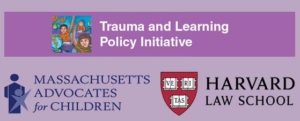Jyn
Hello, my name is Jyn, and I am here to speak to you today about my experiences in my school district. I am 18 years old, but I am currently a sophomore in high school. I started my educational journey in high school when I was 14 years old. I got held back after my first freshman year, graduated to my sophomore year, and then was subsequently held back once more. At this point, I aged out of traditional schooling and now attend an online school which is also able to accommodate non-traditional students. I bring all of this up because my educational experience was not well tailored to me or how I learn, and it has resulted in my being an 18-year-old sophomore.
I want to talk about two distinct issues which contributed to where I am today. The first is the inability of my school to adapt to the ever-changing needs of students. I suffer from insomnia and ADHD which both made a typical school schedule immensely challenging. My difficulty sleeping made succeeding in my morning classes, particular my 7:25 AM class, impossible. Despite my insomnia, and despite there being a clear solution to help assist, my high school was inflexible and unequipped to accommodate my unique situation. Now attending my online school, I am largely able to control my schedule and now only have class beginning at 11:00 AM. This has dramatically improved the quality of my education and my ability to learn. I am now receiving mainly A’s in my classes, a far cry from my experience at my previous school. In addition to my insomnia, my ADHD makes focusing and succeeding in my classes difficult. I often find myself needing concepts explained in different ways and getting individual help from my teachers. While this was impossible at my previous school, it has been central to my experience at online.
All of this is to say, I needed help recognizing the impediments to my education and needed accommodations like my new school provided. If a teacher or support staff recognized what I was going through and helped me access difference resources, I may not have been held back, twice. Students are always in the best position to advocate for themselves, but we still need our institutions to help us navigate things like getting diagnosed, getting accommodations, and even getting an Individualized Education Program. Someone spoke to me about the possibility of getting an IEP, but no further resources or information was provided, and I continued to struggle.
The second issue I wish to discuss is the lack of student input into curriculum design. There are many fields of academic study, many of which never appear in most high schools. I have a passion for geography, for example. I can name every single country in the world, every capital, every flag, and know quite a bit about the history of different countries. It is challenging, particularly with ADHD, to give all my classes the attention they are due. Having a curriculum better tailored to my interests—geography, international relationships, political science, etc.—would have been tremendously helpful in my educational experience. Teachers, administrative staff, and the broader educator community should speak with students and ensure their interests are being addressed in curriculum design. If school really felt like it was FOR students, it would be easier as students to be engaged. Legislators, I urge you to fund the Safe and Supportive Schools Act to help schools become safer, collaborative places where students can access the resources they need, feel supported in getting help, and generally improve the outcomes of students. I was failed by my district, and I do not want to see the same thing happen to anyone else.
“I bring all of this up because my educational experience was not well tailored to me or how I learn, and it has resulted in my being an 18-year-old sophomore.”—Jyn
“Despite my insomnia, and despite there being a clear solution to help assist, Haverhill high school was inflexible and unequipped to accommodate my unique situation.”—Jyn
“Teachers, administrative staff, and the broader educator community should speak with students and ensure their interests are being addressed in curriculum design. If school really felt like it was FOR students, it would be easier as students to be engaged.”—Jyn


